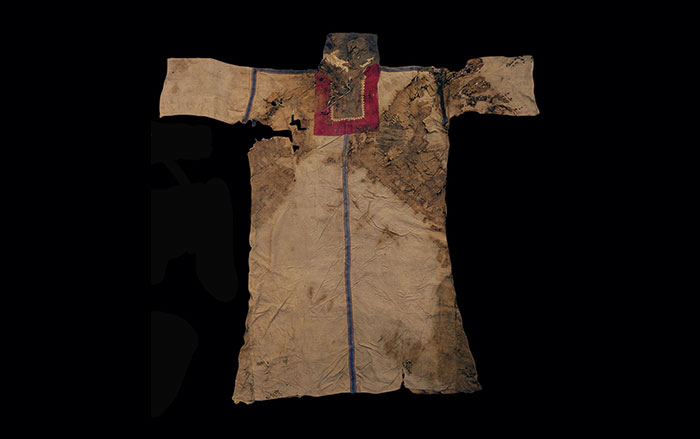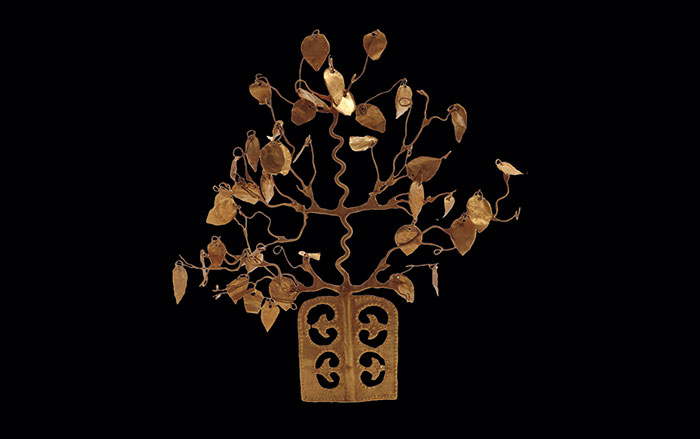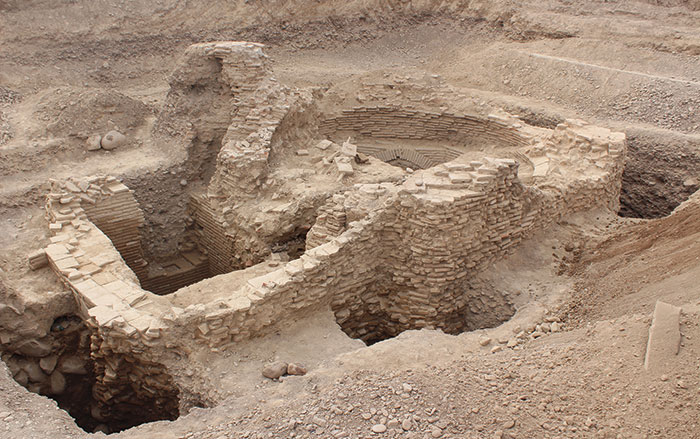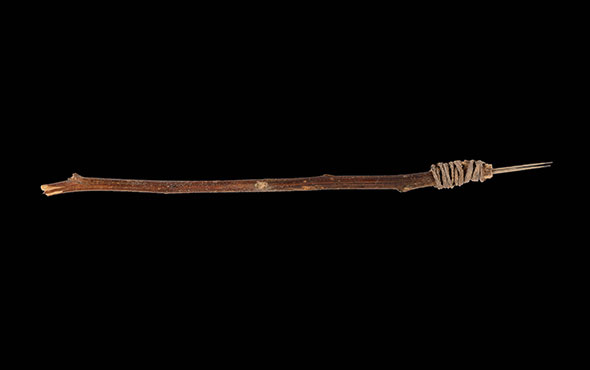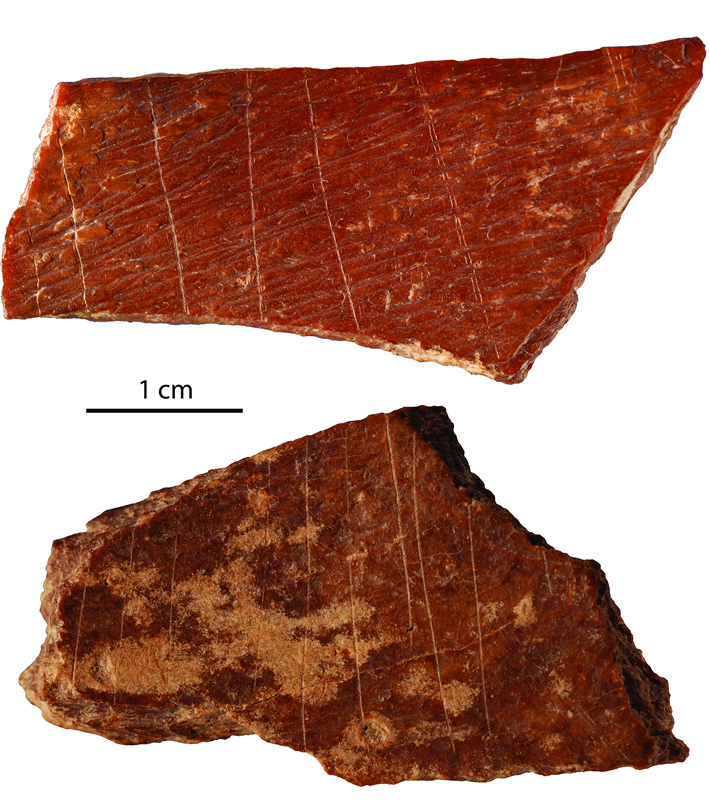
HENAN PROVINCE, CHINA—According to a report in The Indian Express, two bones marked with engravings highlighted with ochre have been discovered among thousands of bone fragments at the Lingjing site in central China, in an archaeological layer dated to between 105,000 and 125,000 years ago. The oldest known bone tools in China have also been discovered at the Lingjing site. Luc Doyon of Shandong University, Francesco d’Errico of the Université de Bordeaux, and their colleagues attempted to recreate the marks on pieces of bone, and found different tools and motions were probably used by an ancient human relative to create the artifacts. The traces of iron oxide were detected on the carved side of the bone fragments using microscopic analysis. “The discovery of the engravings now indicates that the people living at this site [some] 115,000 years ago not only understood the utility of bone for the manufacture of stone tools," Doyon said, "but considered this raw material a good medium to permanently record abstract patterns." For more on recent discoveries in China's Henan Province, go to "Tomb from a Lost Tribe."


